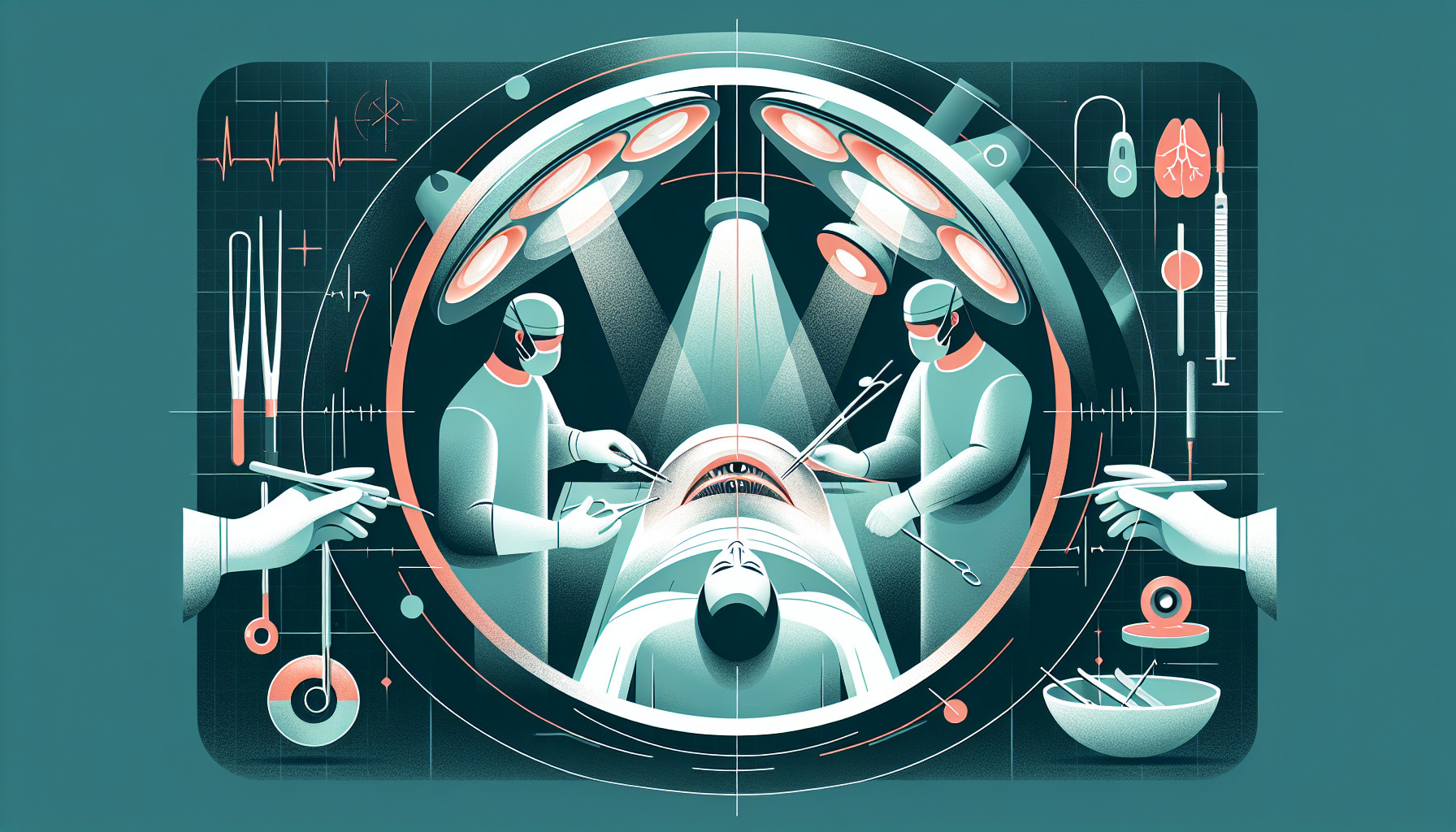Our Summary
This research paper investigates the impact of using cautery (burning tissue to stop bleeding or remove abnormal growths) during manual small-incision cataract surgery (MSICS) on post-operative astigmatism in Indian patients. The study involved 150 eyes split into two groups - one group underwent MSICS with cautery and the other group without. Post-operative astigmatism (an eye condition that can distort vision) was measured in both groups at different time intervals. The results showed that using cautery during surgery did not lead to a higher level of post-operative astigmatism. In fact, the amount of astigmatism reduced over time. Therefore, the use of cautery in MSICS can be considered safe in terms of astigmatism.
FAQs
- Does the use of cautery during manual small-incision cataract surgery (MSICS) lead to a higher level of post-operative astigmatism?
- How many patients were involved in the study and how were they divided?
- Did the level of astigmatism change over time following the surgery?
Doctor’s Tip
A helpful tip a doctor might tell a patient about cataract surgery is to follow all post-operative instructions carefully, including using any prescribed eye drops, attending follow-up appointments, and avoiding activities that could put pressure on the eyes. This will help ensure a successful recovery and optimal vision outcomes.
Suitable For
Typically, patients who are recommended cataract surgery are those who have:
Significant vision impairment: Cataracts can cause blurry vision, difficulty seeing at night, glare from lights, and other visual disturbances that can significantly impact a person’s daily activities.
Difficulty performing daily tasks: Patients who have difficulty reading, driving, watching TV, or recognizing faces due to cataracts may be recommended for surgery to improve their quality of life.
Cataracts affecting both eyes: If cataracts are present in both eyes and are causing vision problems, surgery may be recommended to improve vision in both eyes.
Healthy enough for surgery: Patients who are in good overall health and do not have any medical conditions that would increase the risks of surgery may be recommended for cataract surgery.
Willingness to undergo surgery: Patients who understand the risks and benefits of cataract surgery and are willing to undergo the procedure may be recommended for surgery if their vision impairment is significant enough to warrant it.
Timeline
Before cataract surgery, a patient typically experiences symptoms such as blurry vision, sensitivity to light, difficulty seeing at night, and seeing halos around lights. They will visit an eye doctor for a comprehensive eye exam to determine if cataract surgery is needed. The doctor will discuss the procedure, potential risks, and benefits with the patient.
After cataract surgery, the patient will experience improved vision as the cloudy lens is replaced with a clear artificial lens. They may have some discomfort or irritation in the eye, which can usually be managed with prescribed eye drops. The patient will also need to attend follow-up appointments with their eye doctor to monitor their healing and adjust any medications as needed. Overall, the patient should notice a significant improvement in their vision and quality of life after cataract surgery.
What to Ask Your Doctor
Some questions a patient should ask their doctor about cataract surgery include:
- What are the potential risks and complications associated with cataract surgery?
- What type of cataract surgery will be performed (e.g. traditional or laser-assisted)?
- How long will the recovery process take and what can I expect in terms of post-operative care?
- Will I need to wear glasses or contact lenses after surgery?
- How will my vision be impacted immediately after surgery and how long will it take for my vision to fully improve?
- What is the success rate of cataract surgery in general, and specifically for my individual case?
- Will I need any additional procedures or treatments after cataract surgery?
- Are there any specific lifestyle changes or precautions I need to take before or after surgery?
- How often will I need to follow up with my doctor after cataract surgery?
- Are there any specific factors, such as the use of cautery during surgery, that may impact my post-operative outcome?
Reference
Authors: Bahl VJ, Malik KPS, Guliani BP. Journal: Indian J Ophthalmol. 2022 Nov;70(11):3883-3887. doi: 10.4103/ijo.IJO_1540_22. PMID: 36308120
